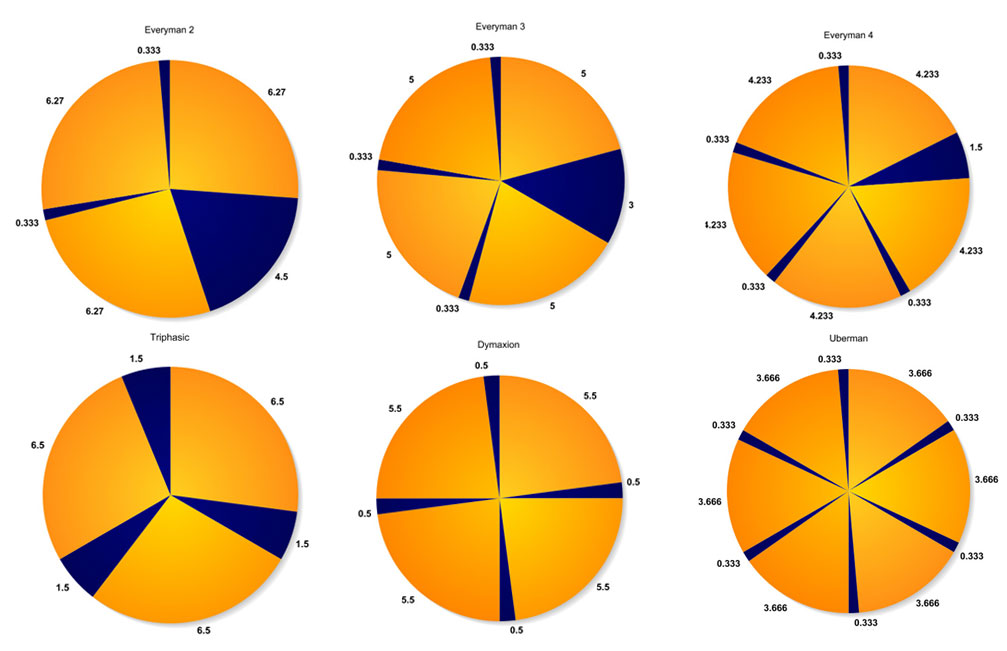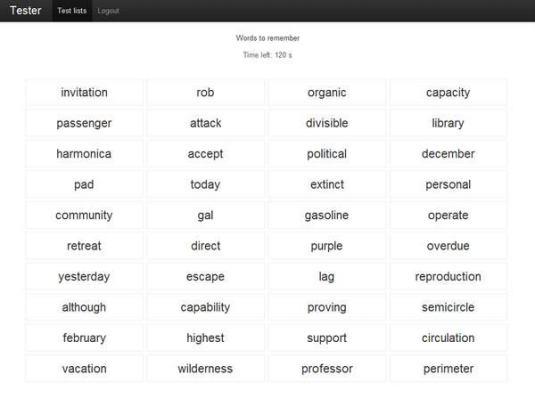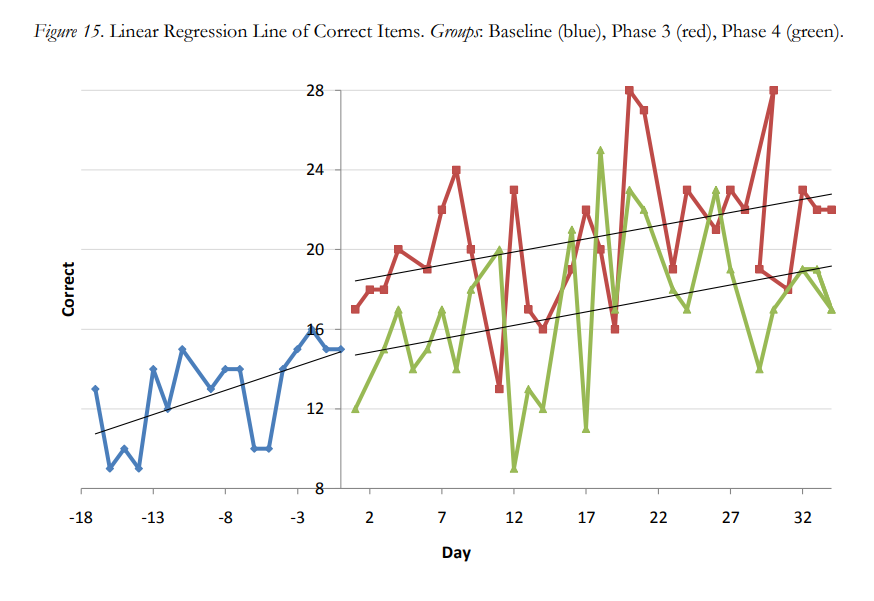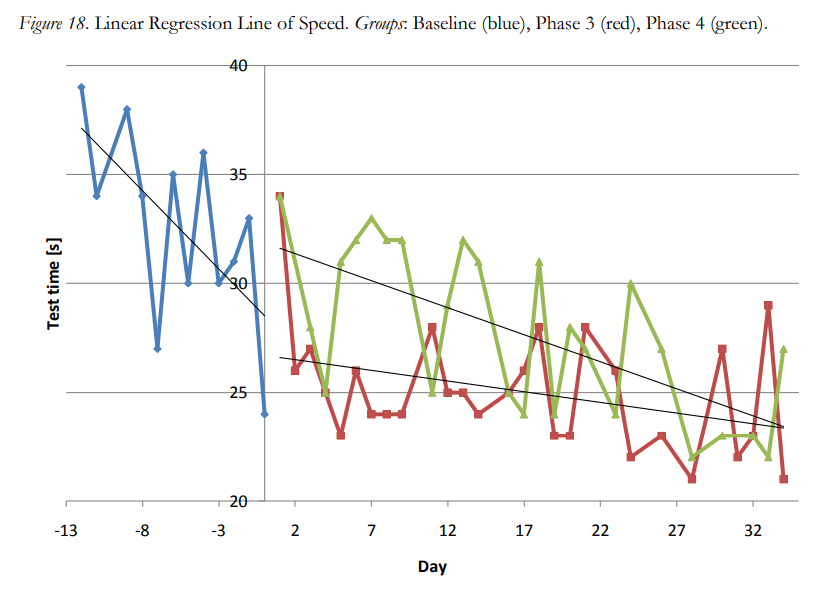Sleep Shorter to Get 62 % Smarter
Even though I see University as very poor place to learn something useful, I studied Psychology in Brno for 3 years.
Psychological Impacts of Polyphasic Sleep is the topic of my bachelor thesis I wrote in 2012. In the end it gave me clear answer to question: can we sleep less than 4,5 hours a night to get smarter?
From 6 to 4,5 hours of Sleep in 3 Months
I switched from monophasic sleep schedule (6 hours in a row) to Everyman 3 (4,5 hours in a row + 3 naps during the day) for 3 months and tested myself daily in attention span, short term memory and working memory.
To give you the idea how polyphasic sleep can look like:

<em>blue = sleep, yellow = awake</em>
And this is how my real sleep schedule looked like:


On average, I slept 3.78 times a day with 4.48 hours in total.
62 % Better Short Term Memory
One of hypothesis was that short term memory improves. It was measured by table of random-generated list of words I had to remember during 2 minutes and then type back in next 60 seconds:

I remembered much more of these words on polyphasic sleep:
| Sleep Schedule | Words Recalled | Improvement to Monophasic |
|---|---|---|
| Monophasic | 12.82 words | – |
| Polyphasic (Phase 3) | 20.66 words | +62 % |
| Polyphasic (Phase 4) | 16.96 words | +32 % |
And in linear regression:

<em>Phase 3: first half of polyphasic period, Phase 4: second half of polyphasic period"</em>
23 % Better Working Memory
Another test measured time that takes to click whole path from the lowest to the highest letter and number (A, 1, B, 2...):

| Sleep Schedule | Path Duration | Change to Monophasic |
|---|---|---|
| Monophasic | 32.58 s | – |
| Polyphasic (Phase 3) | 25.07 s | + 30 % |
| Polyphasic (Phase 4) | 27.73 s | + 17 % |
And in linear regression:

<em>Phase 3: first half of polyphasic period, Phase 4: second half of polyphasic period"</em>
The very similar improvement 23 % was in Group Bourdon Test. It is standard for driver licences and tests attention, pattern recognition and concentration for long period of time (related to so precious deep work).
Just select all 4-dots images:

Win-Win
Not all hypothesis were confirmed. But even though I was ill in phase 4 (see section 5.2), the results were more then clear**. Polyphasic sleep improved my attention, working memory and short term memory from 23 % to 63 %**.
And not only that. And I also got extra 1,5 hours a day!
Polyphasic Sleep - Universal Tool to Boost Production?
It depends on what you need in your life. I needed time to produce because I got many time-demanding goals in that time. In time I learned to prioritize, to focus on what is important and to flow in a deep works session.
I still take a nap roughly once a week and feel fresh, when day is hard. And if I ever be father of another baby, I'd be happy to polyphase with him or her, since it's babies natural sleep schedule.
Do you Need More Time? Try it
Would you use extra hour a day? Have you tried it? Nap a day won't hurt and you don't even have to fall asleep. Modern medicine confirms that mindfulness meditation (which polyphasic sleep often is) has great benefits for your mind.
Where is What in Thesis?
I picked the most interesting parts for you, so you can avoid reading whole 63 pages and go right to the part that you're interested in:
- 4.4 Hypothesis - what needs to be validated
- 4.5 Materials - test battery, how it looked like, what exactly is measured
- 5 Results - numbers, graphs
- 6 Discussion - looking at numbers from perspective, why and what actually happened
Do you have question to specific part of the thesis?
Just go to Google Docs version and ask in comment there.
Happy napping!